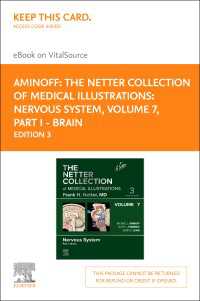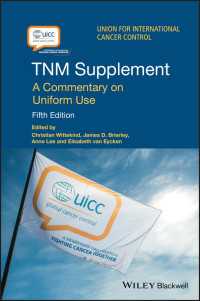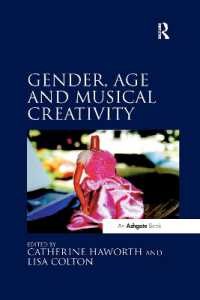- ホーム
- > 洋書
- > 英文書
- > History / World
Full Description
The relation between law and revolution is one of the most pressing questions of our time. As one country after another has faced the challenge that comes with the revolutionary overthrow of past dictatorships, how one reconstructs a new government is a burning issue.
South Africa, after a long and bloody armed struggle and a series of militant uprisings, negotiated a settlement for a new government and remains an important example of what a substantive revolution might look like. The essays collected in this book address both the broader question of law and revolution and some of the specific issues of transformation in South Africa.
Contents
Preface 1. Introduction: Transitional Justice Versus Substantive Revolution Should Critical Theory Remain Revolutionary? 2. Is Technology a Fatal Destiny? The Relevance of Heidegger for South Africa and for All "Developing" Countries 3. Socialism or Radical Democratic Politics? On Laclau and Mouffe The Legal Challenge of uBuntu 4. Dignity Violated: Rethinking AZAPO Through uBuntu 5. Which Law, Whose Humanity? The Significance of Policulturalism in the Global South 6. The Significance of the Living Customary Law for an Understanding of Law: Does Custom Allow for a Woman to Be Hosi? The Struggle over uBuntu 7. uBuntu, Pluralism, and the Responsibility of Legal Academics to the New South Africa 8. Rethinking Ethical Feminism Through uBuntu 9. Is There a Difference that Makes a Difference Between Dignity and uBuntu? 10. Where Dignity Ends and uBuntu Begins - A Response by Yvonne Mokgoro and Stu Woolman Conclusion: uBuntu and Subaltern Legality Notes Index
-

- 洋書電子書籍
- ネッター医学図譜コレクション(第3版)…
-

- 洋書電子書籍
-
TNM腫瘍分類補遺(第5版)
T…






